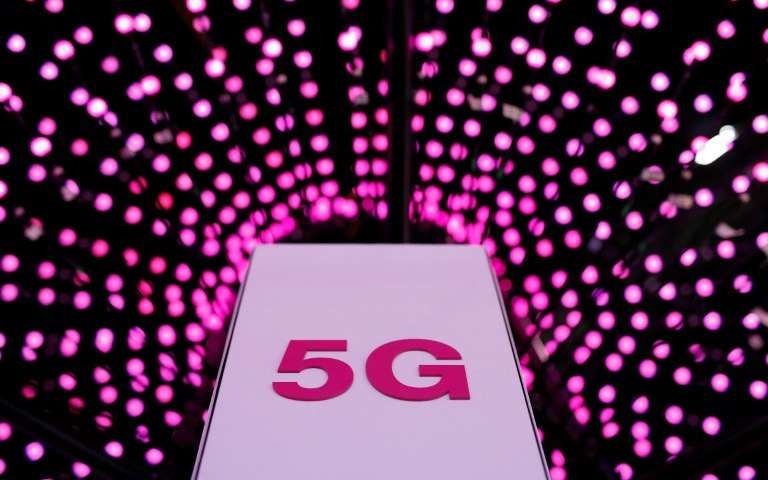5G, this is how much EU countries have flirted with the Chinese Huawei and Zte

Eight EU countries, Germany and Italy in the lead, have purchased over 50% of their technologies from China for 5G networks. Tino Oldani's article for Italia Oggi
Just as Ursula von der Leyen announces that next year the EU Commission will undertake the launch of the Global Gateway, an investment plan in non-European countries, Africa in the lead, for an amount of 300 billion by 2027 to counter the Via of silk and the penetration of Chinese technologies, a study reveals that as many as eight EU countries, including Germany, the Netherlands and Italy, to set up 5G networks (fifth generation standard for telecommunications) have so far purchased more than 50 percent of the technologies from Chinese suppliers, first of all Huawei, the Chinese giant banned by the US and Great Britain.
This means that the decoupling of Western economies from China, which has become one of the key points of US policy, especially in the technological field, has not worked in Europe, with a few exceptions.
The study, conducted by Copenhagen-based telecommunications consultancy Strand Consult, calculated the share of Chinese technology purchased to date for 5G by 31 European countries. Eight exceeded the 50 percent mark: Cyprus 100%, Romania 76, Netherlands 72, Bulgaria 65, Austria 61, Germany 59, Italy 51. Countries below 50 percent include: Switzerland 43, Ireland 42, Finland 41, Poland and Spain 38, Portugal 34, Belgium 30, Greece 25, France 17. Zero purchases of Chinese 5G technologies by eleven countries: Denmark, the Czech Republic, Sweden, Norway, the three Baltic countries Lithuania, Estonia and Latvia, Malta, Luxembourg, Slovakia and the Faroe Islands.
In the ranking, the United Kingdom appears with a 41% share, the result of purchases of Huawei and ZTE technologies made before, in July 2020, the British government, then headed by Boris Johnson, prohibited British telephone companies from continuing with the purchase of Huawei technologies, giving until 2027 to remove those technologies from their 5G networks. A decision taken, at the time, mainly as a protest against Beijing's crackdown on the former colony of Hong Kong, and only secondarily to align Great Britain with the US in banning Huawei, whose technologies are suspected of potential espionage .
Commenting on the study, John Strand, founder of the consulting firm that bears his name, did not hide his aversion to Huawei: «Depending on Chinese communication networks risks being more dangerous than depending on Russian gas. Preaching, in Europe, is easier than practicing». Judgment that seems to echo a recent position taken by Margrethe Vestager, vice president of the EU Commission and head of the European Antitrust, who last November 10 had urged EU countries to "reduce without delay, as a matter of urgency, the risks associated with telecommunications companies for 5G".
An invitation that you explicitly addressed above all to Germany, a country which, according to the Danish study, constitutes "the hotspot of Huawei in Europe". Vestager specified: «A certain number of countries have approved the European directive, but have not implemented it. It's not just Germany, but also Germany."
Indeed, in 2020, EU countries approved the "5G Security Toolbox", aimed at reducing technological dependence on "high-risk suppliers" for future telecommunications networks, with the objective aimed at Huawei and its Chinese competitor Zte . This indication corrected, without however canceling it, a previous EU directive of March 2019, with which the EU Commission did not place any veto on Huawei in matters of cybersecurity, but left individual states the freedom to act on the basis of the risk identified for national security .
In practice, an EU legislative patchwork full of loopholes, thanks to which Huawei has been very quick in selling its technologies to the countries that have moved first in setting up 5G networks. Among the fastest, Holland, which completed the 5G network in record time, with 72% of Huawei technology. Equally rapid was Deutsche Telekom, the largest German operator, which not only worked with Huawei in the first phase of the 5G rollout, but also maintained a strategic partnership with the Chinese giant for years, stipulated in 2019 with the blessing of Angela Merkel.
Only recently has the German government defined a legal framework that allows action to be taken in the field of cybersecurity, but only if the relevant ministers want it. Result: last month the Minister of the Economy, Robert Habeck, green, vetoed the purchase of a German semiconductor factory (Elmos) by Silex, the Swedish branch of the Chinese Sai Microelectronics. A turning point perhaps more apparent than real, which did not prevent Scholz from going to Beijing to meet Xi Jinping, the first European leader to do so after the Chinese leader's confirmation in power.
Still on the subject of cybersecurity, in 2019 Italy, under pressure from the United States (Donald Trump), also passed a law to endow the government with special powers ("golden power") to protect companies of national interest. Powers that the Atlanticist Mario Draghi has exercised twice, to prevent Chinese groups from buying two Italian companies, Lpe (integrated circuits) and Robox (robotics). Adolfo Urso, the new Minister of Industry, has undertaken to do the same "to defend Italian companies from foreign aims, China and Russia in the lead". However, the fact remains that more than half of the Italian 5G network depends on Chinese technologies. And going back does not seem expected or easy in the short term.
Article published on italiaoggi.it
This is a machine translation from Italian language of a post published on Start Magazine at the URL https://www.startmag.it/innovazione/5g-huawei-e-zte/ on Mon, 26 Dec 2022 06:38:21 +0000.
